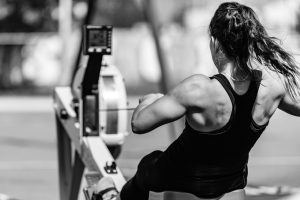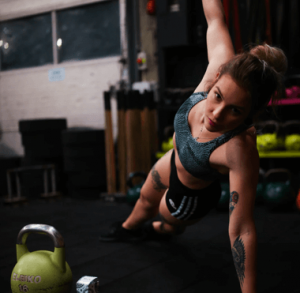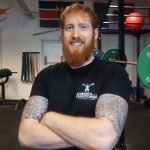INTRODUCTION – THE FITNESS INDUSTRY IS GETTING BETTER AND BETTER!
In recent years, the global fitness industry has been valued at nearly $100 billion. This is only set to rise with the ever growing popularity of physical training, and I for one think it is going in the right direction!
The fitness industry used to be dominated by “how to achieve rock solid abs with minimal effort using the Ab Master 6000”. However, in recent years this model has been flipped on it’s head.
Although there are many negative aspects of social media and the fitness influencers who are often far from being experts. I think as a whole, social media has been a force for good in the industry for two reasons:
- It allows fitness professionals to easily reach their audience.
- It has exposed the world to a higher level of physical training.
Regular people are following some of the best coaches in the world, while watching athletes and fitness fanatics taking on incredibly intense training regimes.
Hate it or love it, Crossfit is a great example of this. They preached “your workout is our warm-up” and exposed people to advanced forms of training such as Olympic Weightlifting and Gymnastics. And what happened? Crossfit became a $4 billion brand.
So what does this tell us?
No, I am not trying to tell you to become a Crossfit affiliate (unless that is your plan). I am telling you that contrary to what many “fitness marketing influencers” are saying in their Facebook ads, the traditional fitness industry (PTs training clients in gyms and parks etc) is forever growing and the standard of clients is going up and up.
After leaving the British army and going into the civilian fitness industry, I soon realised that the civvies were not all the lazy slobs the army made them out to be. In fact, many spent the majority of their spare time running ultra marathons and triathlons, and were keen to take part in Powerlifting meets and Weightlifting workshops.
I used to call these people recreational or hobbyist athletes. However, I recently came across a much better term from an OCR (obstacle course racing) coach I work with, “Professional Amateurs”.
Yes, alongside the professional athletes I worked with, many of my clients were the standard “lose weight for the summer holiday”. However, in recent years myself and the trainers I work with have noticed a huge change in the type of client goals we see. It’s not just “lose weight and tone up”, it is “build strength and fitness”, “get me ready for this sporting/fitness event”, or “teach me how to perform a snatch”.
There is nothing wrong with targeting weight loss, lets face it, it’s the most common goal and many gyms and trainers do extremely well concentrating on that model. What I am saying is that the scope of interests and motivators is expanding massively, which is great – you just have to be well equipped to get a piece of the action.
It’s a big pie, with almost 8 billion people in the world and literally billions of people training daily, you only need a tiny slice to be a huge success – there were 6 billion gym visits in the USA in 2019 and that excludes hotel gyms!

WHAT QUALIFICATIONS DOES A FITNESS PROFESSIONAL NEED?
In this article, my aim is to be absolutely transparent and discuss the pros and cons of the the many routes people take to become fitness professionals.
In the UK, there are two fitness qualifications that all trainers need to deliver group fitness classes and 1to1 personal training sessions with clients.
There are numerous awarding bodies that provide globally recognised qualifications in the UK. These include Active IQ, Focus Awards and CIMPSA (The Chartered Institute for the Management of Sport and Physical Activity) to name a few.
In the USA, individuals will often get their certifications through organisations like the American Council on Exercise or the American College of Sports Medicine.
At SCC, we provide 3 certifications through Active IQ:
- Level 2 Certificate in Gym Instructing.
- Level 3 Diploma in Personal Training.
- Level 4 Certificate in Strength and Conditioning.
All these certifications are OFQUAL approved which is the Office of Qualifications and Examinations Regulation, a non-ministerial government department with jurisdiction in England – there are equivalents in Wales and the EU etc.
The level 2 is the entry level for the fitness industry (no prerequisites – you don’t have to do a level 1 before it). This is because the qualifications follow a framework and therefore, the “Gym Instructor” content is considered at a level 2 standard.
The level 2 qualifies individuals to work running group fitness classes both indoors and out. Whereas the level 3 qualifies the individual to run bespoke training sessions that are designed specifically towards an individuals needs and goals.
Note: Although the level 2 qualifies the individual to run group fitness. It usually follows a similar curriculum as the level 3 and in essence, acts as an intro to the level 3.
Level 4 qualifications within the fitness industry are often considered specialisms, such as Strength and Conditioning, Exercise Referral, Pre and Post-Natal, The Management of Low Back Pain or Obesity and Diabetes – trainers are able to choose the specialisms they are interested in.
Many fitness professionals in the UK registered and got their insurance through REPs (The Register of Exercise Professionals). The aim of REPs is to ensure the standard of fitness professionals. There are equivalents to the UK version globally and you can find more information at the International Confederation of Registers for Exercise Professionals (ICREPs). However, REPs in the UK has been absorbed by CIMSPA – REPs was originally owned by SkillsActive before being under the stewardship of UK Coaching from 2016.
Note: Trainers do NOT have to gain insurance through organisations such as REPs. Simply searching “Personal Trainer Insurance” on Google will bring up many options, including comparison sites. Popular providers include Insure4Sports and Protectivity – insurers will simply require copies of your certificates.
Aside from these certifications, like many industries the fitness industry pushes lots of CPD (Continued Professional Development) qualifications. These are usually short weekend courses or online workshops, which concentrate on specific skills or equipment such as Kettlebells, Suspension Trainers or Resistance Bands.
REPs required trainers to achieve 10 REPs points each year which were gained with CPD courses (courses were allocated a certain number of points). This is a great concept, but after a few years it can be a little hard to find CPD courses that are worthwhile.
CPD is absolutely essential for all professionals. However, the fitness industry almost gave the impression that for an individual to use a piece of equipment, they require the relevant CPD course.
This was in all honesty a little money grabbing. Yes, many CPD courses are great and really enhance your knowledge. However, ultimately the level 2 and 3 should qualify the trainer to work with all of the equipment available in a gym (of course, it is unlikely to cover very specific equipment like atlas stones).
Essentially, if you want to work with clients on a 1to1 level, you need your Level 3 in Personal Training and that is it!
When it comes to degrees and other forms of accreditations, these carry huge weight in the industry and may be required for specific roles. However, a degree from a university or college such as a BSc in Sports Science or an MSc in Strength and Conditioning does not certify you to work in the fitness industry – a certification allows you to gain the necessary insurance to work with the general public in a gym or park environment teaching fitness.
Of course, even if you partake in a very extensive personal training course, there is only so much content that can be covered, hence why we created our comprehensive online content to compliment the courses, while also being available for other professionals and enthusiasts – ultimately, it is the job of the centre providing the qualification to go the extra mile, not the awarding body (they provide the minimum standards).
Our currently released online courses are available through the SCC Learning Portal.
When it comes to becoming a strength and conditioning coach who works with college athletes or professional sports teams, the usual route is to get a degree (BSc – Bachelors) in a relevant subject such as:
- Sports Science.
- Kinesiology.
- Sports Psychology
- Sports Rehabilitation.
Students usually take on strength and conditioning as a specialist subject or progress to complete their MSc (Masters) in Strength and Conditioning.
From there, in the UK, coaches go on to complete their UKSCA (United Kingdom Strength and Conditioning Association) Accreditation. In the United States (and globally) they go on to complete their CSCS (Certified Strength and Conditioning Specialist) with the NSCA. In Australia, they gain accreditation with the ASCA (Australian Strength and Conditioning Association).
Of course, not all coaches and PT’s come from an academic background and do not aim to take on a full time role at a sports club or college. Therefore, the market for PTs upskilling to Level 4 Strength and Conditioning Coach has gone through the roof in recent years – this is our main aim at SCC, to upskill fitness professionals and enthusiasts (even your average gym goer is taking a far more educated approach to training these days).
Unfortunately, many strength and conditioning certifications are glorified Olympic weightlifting workshops. This is often because the snatch and the clean & jerk are easy ways to assess an individuals advanced skills.
Yes, the Olympic lifts are a brilliant tool within a coaches tool box. However, just as much emphasis should be put towards programming and periodization, warming up, strength training, ballistic training, plyometrics, speed and agility and metabolic conditioning, hence why we created the BIG 8.

HOW MUCH DO THE CERTIFICATIONS COST?
The fitness certifications can vary in cost for a number of reasons. However, here is an example of what we charge and the reasons why others might be more of less expensive.
- Level 2 Certificate in Gym Instructing: £499
- Level 3 Diploma in Personal Training: £799
- Combined Level 2 and 3: £1199
- Level 4 Certificate in Strength and Conditioning: £999
- Combined Level 2, 3 and 4: £1999
In the UK, there is a requirement for students to have face to face learning hours with their tutor. For example, 20 hours on the level 2 and 30 hours on the level 3. This is alongside distance learning with a manual or online learning.
Some centres provide full time, face to face learning which usually lasts 6-8 weeks for each course (I have seen fast track courses which last 2-3 weeks), while others are part time but can last 7 or 8 months (every or every other weekend). You can potentially pay £2000-£3000 for courses that involve expansive classroom work with your tutor. However, they are often worth it.
At the SCC Academy in the UK, our level 2 is 8 weeks, our level 3 is 8 weeks and our level 4 is 12-weeks. These are a mix of distance learning and practical workshops at the weekends. However, we also provide over 50-100 hours of blended learning during each course. This involves students training and working under their tutor during open gym hours (the amount of blended learning is optional and tailored to each individuals needs).
All three qualifications include written worksheets, assignments and practical assessments. The level 2 includes an anatomy and physiology exam and the level 3 includes an anatomy and physiology exam and a nutrition exam.
Unfortunately, many course providers deliver the absolute bare minimum for you to gain your certification. These courses are often 100% online and some course providers will even have you send a video of your practical assessment. Therefore, there is zero face to face learning or practical work – I have seen these courses for as little as £499 for the level 2 and 3 combined, and around £599 for the level 4 (any cheaper than this and I would be wary).
Although I stated earlier that the fitness industry is getting better and better, and I truly believe that. There are a lot of new PTs coming through that simply don’t have the tools to make a success of their career within the industry (most PTs fail within the first 2 years). Therefore, it is essential that people lay the strongest possible foundations – it is a big pie, but there are A LOT of people trying to eat it.
In short, invest in yourself, but choose the courses you really need.

TIPS FOR SUCCESS: THE 3 P’s
It’s human nature to want to find the key to success and we love the idea of there being one fundamental principle or strategy. Of course, we all know success is multifaceted. However, there are a number of key areas that I stand by.
When I left the British army, I believed qualifications were the key. Yes, having the base qualifications is a prerequisite (level 2 and 3) and being well qualified goes a very long way. However, I believed it was the certificates I could list that would get me clients, but after years of owning a gym and working with literally 1000’s of clients and athletes. I have realised, not a single person really knew what certificates I had, other than the fact I must be qualified.
So, what are the key areas for me? Well I call them the 3 P’s:
- Passion.
- Personality.
- Performance.
Now if you are not very passionate, then you are probably in the wrong industry, people are drawn to passionate people.
When it comes to personality, obviously you can work on being more personable and professional, but you can’t just fake it. Not everyone is going to like you and that doesn’t matter, but if you are likable, you’re going to find getting and keeping clients a lot easier – don’t be a mood hoover, you want people to leave feeling great not just because of the training, but also the vibe you give.
When it comes to the final P, Performance, which refers to your knowledge, practical skills and ability to coach. This is something you can really work on; this is what sets you apart from other trainers and allows you to Become the Expert within your community.
I quickly realised that people might not be at a level where they require elite programming which includes a wide array of advanced stimuli, but they still want their coach or trainer to be the best of the best.
If you asked me what the 1 key to success in this industry is, I would say “the passionate demonstration of expertise”. When I asked new clients or athletes for feedback on how they found my service etc, they always said “I was told you really know your stuff”, and that was literally every time!
My advice is gain the base qualifications you need and then find the courses and content that will really help you to become the trainer or coach you want to be. It doesn’t matter if this content comes in the form of paid courses, books or a YouTube account you follow, as long as it provides you with the expertise to demonstrate just how good you are.
From here, you need to dive in head first, swim hard and don’t stop. I was definitely helped by the almost naive optimism I had upon leaving the army. It helped me to not give up and allowed me to portray myself as the coach I wanted to be.
Always remember, being an expert is an ongoing project and the more you read, the more you realise you don’t know. But don’t let that scare you (imposter syndrome), that’s what makes this industry so engaging – we are all barely scratching the surface of health and fitness, so get digging!

A WORD FROM THE AUTHOR
Hey, thanks for reading my article, I hope you found it useful.
If you have any questions about being in the fitness industry, don’t hesitate to drop me an email at [email protected].
You can also join our private Facebook group and be a part of our global community of coaches, athletes and enthusiasts: The SCC Academy.
If you haven’t already, grab a FREE copy of the unique muscle manual I designed by clicking the banner below.
Coach Curtis

